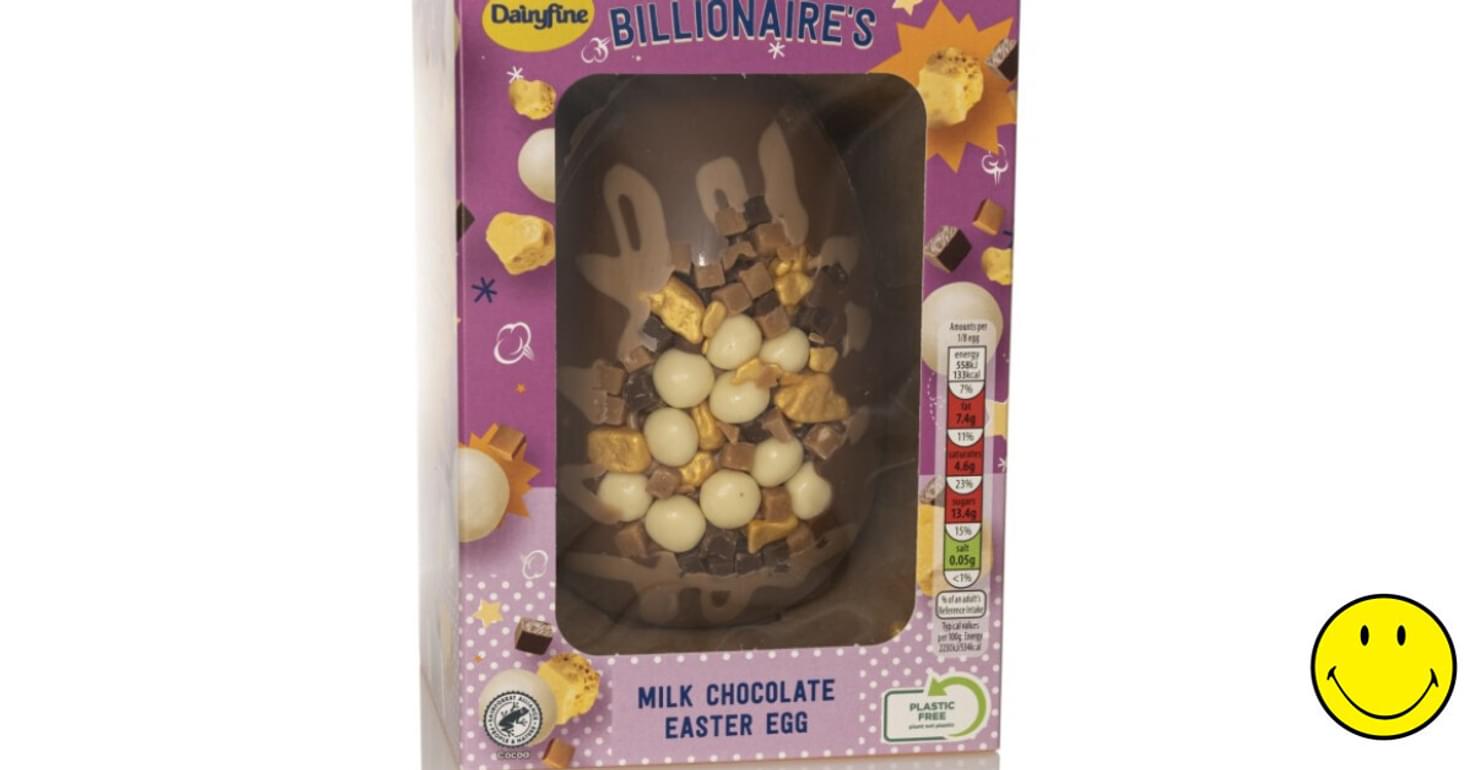
Words by Smiley Team
Giving us even more reason to celebrate this Easter, Aldi is removing two million pieces of throwaway plastic from its seasonal chocolates and sweets.
To eliminate the need for excess materials that are usually needed to support fragile chocolate eggs, the supermarket is giving some of its eggs square bases. They may not look the same but they will taste even better, with the knowledge that you’re saving on unnecessary waste plastic.
The square-based eggs are part of six Easter 100 per cent plastic-free lines that the retailer is introducing to its shelves.
Their other plastic-saving innovations include replacing plastic windows from confectionary boxes with a compostable cellulose film made from wood fibres.
They’ll also launch a fully-sustainable chocolate box featuring an insert made from, believe it or not, recycled potato skins.
“We’re committed to eliminating plastic wherever possible, and the changes to our Easter range are a great example of removing unnecessary plastic that we can all do without,” said Richard Gorman, plastics and packaging director at Aldi UK.
With all these efforts added up, the supermarket’s changes will remove 29 tonnes of plastic from its Easter range.
An eggcellent initiative by a super supermarket
Terrible puns aside, Aldi’s plastic-free Easter ranges build on a longer-term commitment to sustainability that is vital to protecting the environment and our planet.
Every minute, 20 tons of plastic end up in the ocean, and every week we swallow an average of five grams of this. If this continues the UN warns that by 2050 there will be more plastic in the oceans than fish.
The reduction of plastic in Aldi’s Easter range follows on from the supermarket’s removal of more than 5.5 million pieces of plastic last year, including successful changes to its Christmas range.
Thanks to such changes, the supermarket is on track to have all product packaging reusable, recyclable or compostable by the end of 2025.
Gorman said: “We know our customers want to protect the environment, and it is changes like these that make all the difference.”